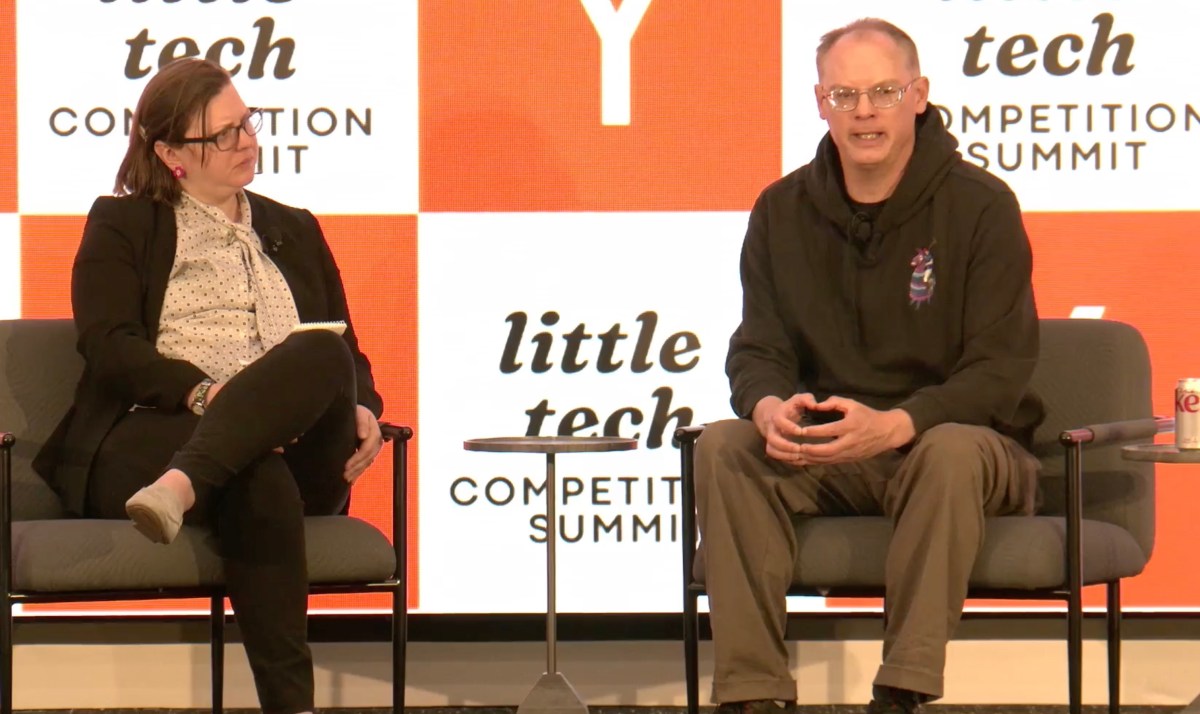Epic Games CEO calls Apple and Google ‘gangster-style’ businesses in need of competition
Epic Games CEO Tim Sweeney, whose company makes Fortnite and tools for other developers, including Unreal Engine, called out Apple and Google as “gangster-style businesses” engaged in illegal practices while speaking at a Y Combinator event on Wednesday. The executive also emphasized how the big tech companies’ practices directly affected his own business by scaring away users from installing Epic’s Games Store software and preventing Epic from attracting developers to its offerings.
Notably, Epic Games has played a big role in the fight against big tech monopolies over the past several years.
The company sued both Apple and Google
for monopolistic practices over their respective app stores. Epic won its case with Google but not with Apple. However, the court did require Apple to open up to more competition by forcing a change to its App Store rules. The court said app developers should now be able to link to other purchasing mechanisms besides Apple’s own. (Unfortunately for app developers, Epic is still battling with Apple in the courts over this change, as it alleges that Apple violated the court order by allowing developers to process their own payments, but only with a small, 3% reduction in commission, which doesn’t make it worth their while.)
Onstage, Sweeney again called out the big tech companies for their practices and their “malicious compliance” with the courts’ decisions.
“The sad truth is that Apple and Google are no longer good-faith, law-abiding companies,” Sweeney said. “They’re run, in many ways, as gangster-style businesses that will do anything they think they can get away with. If they think that the fine is going to be cheaper than the lost revenue from an illegal practice, they always continue the illegal practice and pay the fine.”
The gaming executive pointed to how the tech companies’ practices hurt his business.
For instance, when users on Android try to install the Epic Games Store on their smartphone, Google warns them that the software is from an “unknown source” and might harm their device. This “scare screen,” as Sweeney calls it, is meant to warn users about the dangers of installing non-Play Store apps. But he says the screen results in 50-60% of users abandoning their attempt to install the software.
A similar drop-off rate is found on iOS. In Europe, the Epic Games Store is allowed thanks to new regulations, but Apple displays a warning to users who try to install it. Again, this leads to drop-off rates of 50-60%, Sweeney said.
He calls the use of these screens “textbook self-preferencing,” noting that the companies are “getting away with it.”
“Crime pays for big tech companies,” he said. “Obviously, we shouldn’t expect that to change until enforcement becomes much, much more vigorous,” he told the audience.
In addition, the Fortnite exec said that because of the friction and the associated fees with third-party app stores on iOS, no major game developer has been willing to distribute games through the Epic Game Store. Instead of its usual 30% fee, Apple reduces the fee but collects a “core technology fee” of 50 cents per install per year for any app with more than 1 million downloads.
“Unless your app is enormously high grossing per user, any free-to-play game is largely dissuaded from that,” Sweeney explained. “It’s too expensive for them. Apple would bankrupt them if they did that.”
He did note that the Epic Games Store on iOS has managed to attract some back-catalog games. Meanwhile, the store will open up to developer submissions later this year, which Sweeney hopes will boost the catalog further on both Android and iOS.







